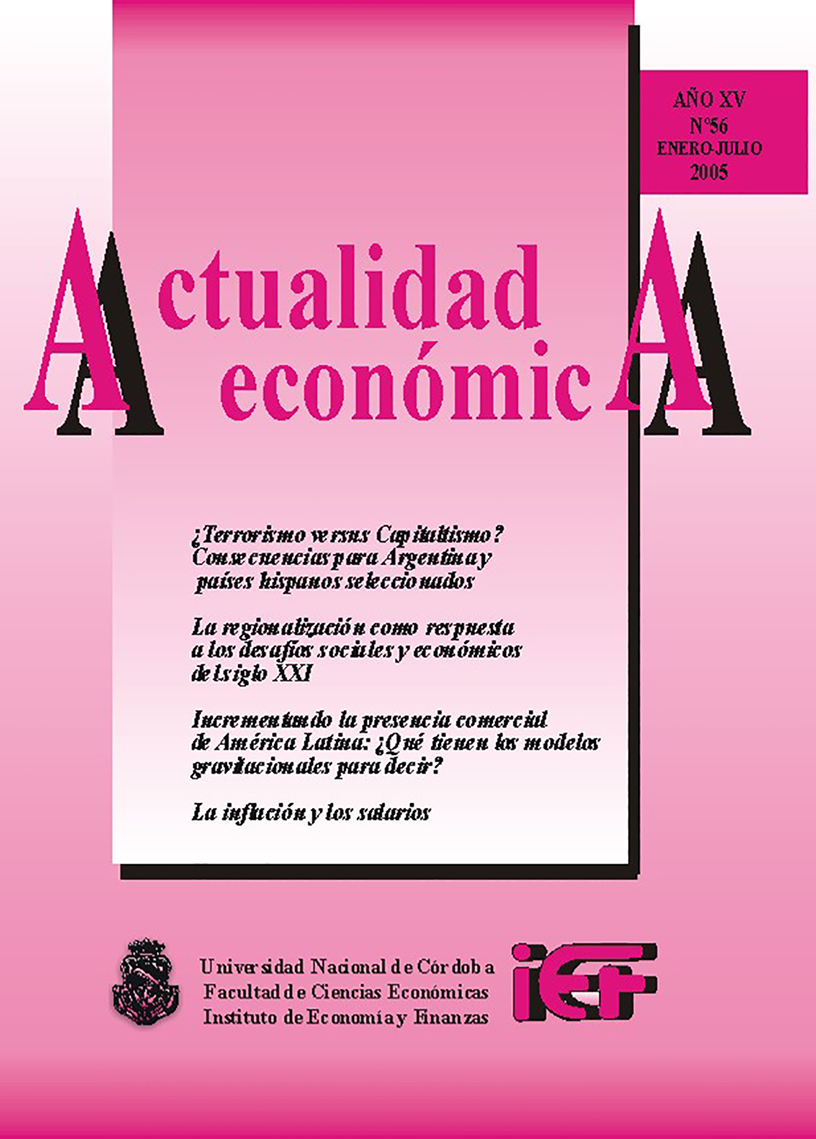Terrorism versus Capitalism? Consequences for Argentina and selected Hispanic countries
Keywords:
Capitalismo, Terrorism, Public PerceptionAbstract
In a program of political analysis of a television channel in the city of Buenos Aires - conducted by a prestigious academic and journalist - a survey called "televoting" is carried out. The Sunday following that of the attack in London on July 7, 2005 (J-7) was raised as a dilemma for the survey: "What is the worst enemy of humanity: terrorism or capitalism?". The surprise caused by the question raised was only overcome by the result of the survey: something like 67% replied that humanity's worst enemy is capitalism and the rest, or 33%, voted for terrorism. The purpose of this essay is to analyze, in the first place, the relevance of the proposed option; second, the result of the survey and the implications regarding capitalism and; thirdly, the economic position of Argentina in relation to selected Latin American countries.
Downloads
Downloads
Published
Issue
Section
License

This work is licensed under a Creative Commons Attribution-NonCommercial-NoDerivatives 4.0 International License.
Those authors who have published with this journal, accept the following terms:
Authors will conserve their copyright and guarantee the magazine the right of first publication of their work, which will be simultaneously subject to the Creative Commons Attribution-NonCommercial-NoDerivative 4.0 International License that allows third parties to share the work as long as the author and first publication of this magazine are indicated.
Authors may adopt other non-exclusive license agreements to distribute the published version of the work (e.g., deposit it in an institutional telematic archive or publish it in a monographic volume) provided that the initial publication in this journal is indicated.
Authors are allowed and encouraged to disseminate their work through the Internet (e.g., in institutional telematic archives or on their website) before and during the submission process, which may lead to interesting exchanges and increase citations of the published work. (See The effect of open access)









